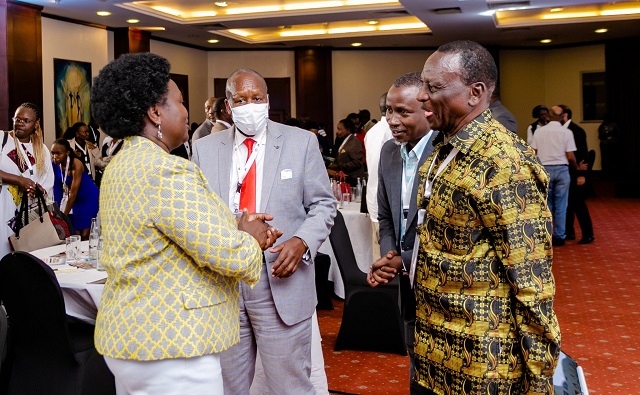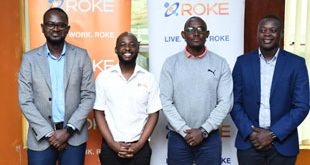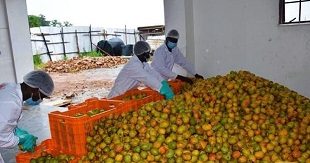
EU has recently supported the Directorate of Geological Survey and Mines (DGSM) with over Shs3 billion to conduct evaluations of iron ore prospects in Southwestern Uganda
Kampala, Uganda | JULIUS BUSINGE | Stakeholders in Uganda’s mining sector have called on the government to make substantial investments in determining the quantities of minerals in the country.
The move would attract investments in the sector and create jobs and related opportunities. This call was made during the 12th Annual Mineral Wealth Conference (MWC2023), held in Kampala from October 30-31.
The conference, organized by the Uganda Chamber of Mines and Petroleum (UCMP) in partnership with the Ministry of Energy and Mineral Development, focused on the theme “Creating a Viable and Feasible Roadmap for Uganda’s Mineral Sector to Contribute to Economic Transformation.”
Jan Sadek, the Ambassador of the European Union to Uganda, emphasized that the real potential of minerals lies not in their extraction but in the strategic process of value addition. He highlighted that promoting extractive industries should lead to job creation and economic growth.
To achieve this, Sadek stressed that Uganda needs a multifaceted approach that includes assembling comprehensive data on the geological and chemical content of the country’s mineral wealth. Such data reduces speculation in the sector and attracts higher-quality, long-term investments.
The European Union has recently supported the Directorate of Geological Survey and Mines (DGSM) with over Shs3 billion to conduct evaluations of iron ore prospects in Southwestern Uganda. This support aims to produce reports, promote investment through feasibility studies, enhance human resource capabilities, and develop plans for iron ore exploration.
In alignment with the EU’s Critical Raw Materials Act, Sudek expressed the EU’s readiness to engage further with Uganda in a mutually beneficial partnership aimed at creating a sustainable and resilient mineral sector that drives economic growth, job creation, and technological advancement.
Uganda has seen advanced exploration in crucial minerals, especially rare earth elements (REEs) and graphite, positioning the country to play a substantial role in the global “Green Energy” revolution.
Richard Kaijuka, the Chairman of UCMP’s Board of Trustees, noted that the conference’s theme was carefully selected in light of the new horizon ushered in by the Mining and Minerals Act 2022. The new law seeks to professionalize and formalize artisanal and small-scale miners (ASMs) and provides the Minister with licensing powers. The legislation also introduces state equity participation, where the State may acquire a non-dilutable ownership interest in large-scale or medium-scale mining licenses.
In 2022, data from the Uganda Bureau of Statistics (UBOS) indicated that the mining sector contributed 1.6% to the national GDP. UCMP believes this figure is an understatement and expects it to increase in the coming years as the country harnesses opportunities in the sector.
Uganda’s National Development Plan (NDPIII) includes a Mineral Development Programme aimed at increasing mineral exploitation and value addition. The plan has ambitious targets, such as reducing the value of imported Iron and Steel, decreasing the volume and value of imported inorganic fertilizers, increasing the volume and value of refined gold exports, growing the number of trained Geoscientists, and raising the value of investment into mineral exploration and processing.
The development of minerals such as iron ore, gold, copper, and phosphates, and the Development of Minerals (marble, silica sand, aggregate, and limestone) are prioritized. There will be continued studies to fully quantify all known minerals, as the mining sector is projected to be a major driver of employment and GDP growth for Uganda.
Although Shs 54.3 billion was allocated to the mining industry in the current national budget (FY2023/2024), an increase from the previous year, Kaijuka called for more funding for mineral exploration.
Aeromagnetic geological surveys have indicated Uganda’s potential for commercial exploitation of over 20 categories of minerals, including rare earth elements, graphite, nickel, iron ore, gold, copper, cobalt, and more.
Ruth Nankabirwa, the Minister of Energy and Mineral Development, highlighted Uganda’s focus on beneficiation (value addition) in the mining sector. The government aims to promote value addition for employment creation, industrialization, and local content development.
Nankabirwa praised the private sector’s contributions to Uganda’s mining and mineral industry, noting several companies’ efforts in advancing the sector. These include efforts by companies such as Wagagai (Busia gold), Rwenzori Rare Metals and Ionic Rare Earth (Makuutu REEs), Blencowe Resources (Orom-Cross graphite), Evergrande (Amudat gold), Guangzhou Dongsong (phosphates), as well as cement factories and gold refineries.
The Minister emphasized that the government’s strategic objective is to promote value addition, generate clean and reliable power supply, ensure compliance with Health, Safety, and Environment requirements, and support the acquisition of surface rights through public/community consultations.
The 2023 Mineral Wealth Conference drew approximately 300 participants from Uganda and beyond.
 The Independent Uganda: You get the Truth we Pay the Price
The Independent Uganda: You get the Truth we Pay the Price


